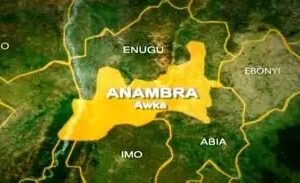By Philomina Attah
The Federal Capital Territory Emergency Management Department (FEMD) has urged FCT residents to engage actively in its safety programmes to reduce disasters.
The acting Director-General, Mr Abdulrahman Mohammed, made the call on Friday in Abuja while highlighting the department’s partnership with RCL Industrial Safety Centre for the FEMD-RCL Emergency Management Forum 2025.
Mohammed appealed to residents to heed FEMD’s guidance and join community safety efforts, especially during the dry season.
He reminded residents that emergencies should be reported through the 112 toll-free line or by calling the Fire Service directly.
Speaking on the forthcoming Forum with the theme ‘Preparing for the Worse,’ Mohammed described the partnership as a proactive move to strengthen disaster readiness.
“Emergencies do not wait. As our city grows, so do the risks. This Forum is a proactive step to ensure the FCT is better prepared,” he said.
He said the event would deepen cooperation among key agencies and improve the territory’s resilience.
According to him, participants will include government bodies, security agencies, private partners and community groups.
He said the forum’s core aims include unified coordination, reviewing the FCT’s risk profile and improving first responder capacity.
Mohammed reaffirmed FEMD’s commitment to disaster response, noting that preparedness depends on continuous training.
He disclosed a major fire sensitisation campaign from Dec. 1 to April 2026 to curb dry-season incidents.
He said the campaign would target all communities and high-risk areas, including petrol stations, to reduce outbreaks.
The Chief Executive of RCL Industrial Safety Centre, Mr Joel Oduah, said the FCT’s rapid growth increased its vulnerability to multiple hazards.
“This partnership is a key step toward improving responsiveness and preparedness for emergencies,” he said.
Oduah said the forum would deploy digital systems and AI tools to manage threats, including fire, floods, bomb scares and medical emergencies.
He added that role plays and drills would cover essential life-saving skills such as CPR and basic first aid.
He emphasised the role of community-based first responders, or wardens, who often manage hazards before major agencies arrive. (NAN)
Edited by Kamal Tayo Oropo








